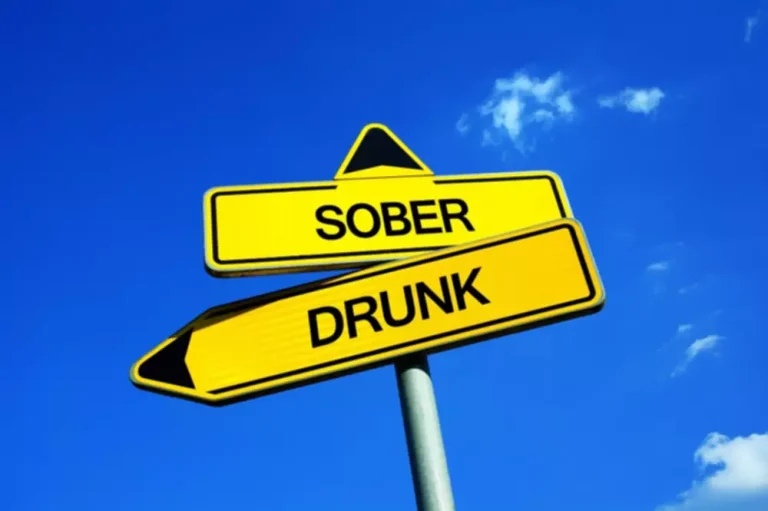Evidence Based Psychosocial Interventions in Substance Use PMC

Conversely, around 8 percent of the general population experiences PTSD, but within the subset dealing with a substance use disorder, this figure surges to between percent. Social skills training (SST) incorporates a wide variety of interpersonal dimensions15. SST is particularly useful when patients return to drinking due to social pressures. Patients may also require communication skills to deal with interpersonal conflicts.
Treatment strategies in the relapse prevention
- In the sections below we elaborate on how these possibilities may accelerate development of cognitive behavioral interventions in the next 30 years.
- Call now to speak with a compassionate admissions navigator and learn about the rehab admissions process.
- Addictive behaviours are characterized by a high degree of co-morbidity and these may interfere with treatment response.
- This approach regards addiction as a relapsing illness with complete abstinence as the only treatment goal and is based on behavioral, spiritual and cognitive principles.
- Her area of expertise includes writing on addiction challenges, providing guidance on treatment procedures, and addressing co-occurring mental issues.
- The main criterion of effectiveness is that a psychological therapy leads to either a reduction in, or abstinence from, that substance and improvements across a broad range of areas of functioning, which include physical health, psychological health, human immunodeficiency virus and hepatitis risk behaviors, interpersonal relationships, employment and criminal behavior.
Overall, these interventions have demonstrated efficacy in controlled trials and may be combined with each other or with pharmacotherapy to provide more robust outcomes. Despite this heterogeneity, core elements emerge based in a conceptual model of SUDs as disorders characterized by learning processes and driven by the strongly reinforcing effects of substances of abuse. Particular challenges to the field include the determination of the most effective combination treatment strategies and improving the dissemination of CBT to service provision settings.
Cognitive Behavioral Therapy (CBT) for Addiction Treatment
This article will review what CBT is, discuss how it can help someone with a substance use disorder (SUD), and review what a person can expect from this form of therapy. This manuscript offers a narrative overview of CBT efficacy for consideration among researchers, clinicians, and other community stakeholders. This work is an overview and should therefore be viewed as such, as some relevant studies may have https://ecosoberhouse.com/ been excluded. We provide a broad view and suggest that CBT is efficacious, but given its longevity, it has become increasingly integrative with time.
- During assessment and early treatment sessions, case conceptualization requires consideration of the heterogeneity of substance use disorders.
- Results for the improvement of retention with motivational enhancement in effectiveness studies have been more promising.53 effectiveness research to better understand the application of CBT outside of controlled research settings.
- Rajiv’s problem is an illustration of how various psychological, environmental and situational factors are involved in the acquisition and maintenance of substance use.
- The studies initially provided relatively high rewards (as high as $1,000) for sustained abstinence from substance use 47-49, but recently, effectiveness studies have focused on providing low-cost CM as a more feasible addition to traditional counseling programs.
- By better understanding the difficulties that contribute to substance use, people can then look for ways to better manage difficult thoughts, emotions, or situations.
step approaches
One major randomized trial (Project Matching Alcoholism Treatment to Client Heterogeneity (MATCH)) indicated that a cbt interventions for substance abuse 12-step program for alcohol use problems resulted in equivalent improvements in alcohol use to CBT and motivational interventions. However in a recent Cochrane review in 2009,45 in which eight trials involving 3417 people were included, no experimental studies unequivocally demonstrated the effectiveness of AA or 12-step facilitation (TSF) approaches for reducing alcohol dependence or problems. However, for some patients they may provide an adjunctive benefit in maintaining changes brought about by other drug and alcohol treatments, a finding that needs more replication. Currently, there is not enough evidence base to support the effectiveness of 12-step programs as stand-alone interventions.

Learning To Say No To Substance Use

In early work, these outcomes showed effect sizes nearly double those for substance use, which is important given they may be of equal or even greater importance to stakeholders such as providers, patients, and families. Data demonstrating very low fidelity in CBT among clinicians in community settings comes from a project exploring what constitutes ‘treatment as usual’ as part of two large multisite clinical trials evaluating Motivational Interviewing (MI) (Miller & Rollnick, 1991, 2002) and Motivational Enhancement Therapy (MET) for individuals seeking treatment for substance use disorders. As a means of developing a fidelity rating system to evaluate implementation of MET/MI versus TAU in those trials, the 66 volunteer clinicians from the 11 participating sites were surveyed as to their usual theoretical orientation and techniques when working with clients at that site. Multiple orientations were endorsed, including 12-Step/disease concept, reality therapy, MI/MET, client centered, psychodynamic, and experiential; however, the most commonly endorsed orientation was relapse prevention/CBT (Ball et al., 2002). Nevertheless, review of taped TAU sessions by independent raters blind to treatment assignment indicated CBT techniques and strategies were among the most infrequently used in practice. Specifically, any clinician mention of cognitions or thoughts about substance use was identified in 14 of the 379 sessions rated and mention of skills training was detected only 13 times (Santa Ana et al., 2008).
Find Cognitive Behavioral Therapy for Addiction Recovery at Oxford

Depending on your plan, you may have a co-pay due at the time of service, you may have to meet a certain deductible before your coverage kicks in, or you may have other out-of-pocket costs. This is determined based on your insurance plan itself, the state you live in, and what type of care you are seeking, such as outpatient mental health therapy versus an inpatient rehab stay.10 To find out for sure, contact your health insurance provider directly. Thus, CBT forms an important tool of intervention and occupies an important place in the psychosocial treatment of substance use disorders. Addiction and relapse are formidable foes, but with the right tools and support, lasting recovery is within reach.

A literature review was undertaken using several electronic databases (PubMed, Cochrane Database of systemic reviews and specific journals, which pertain to psychosocial issues in addictive disorders and guidelines on this topic). The evidence base cited consists of findings from either individual studies or meta-analyses of studies that largely were randomized controlled trials (RCT) in which individuals exposed to these psychosocial interventions had significantly better substance use outcomes either at the end of the treatment phase or at follow-up. Consensus exists that several psychosocial treatments or interventions for substance use disorders are “evidence-based.” These include cognitive-behavioral therapy (CBT) (including relapse prevention (RP)), contingency management (CM), motivational enhancement/motivational interviewing (MI) and brief interventions (BIs) for alcohol and tobacco.


